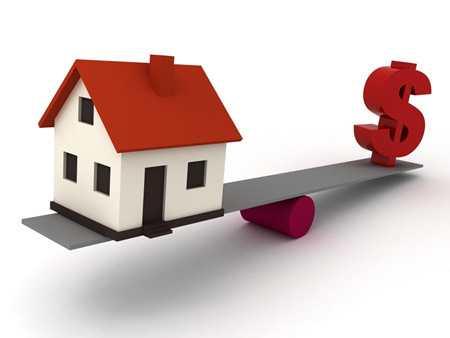
After the housing bubble burst in 2008 many of us succumbed to the economy and had no choice but to declare bankruptcy. Many couldn’t make the payments on their homes and lost them to foreclosure. Fortunately, the economy is slowly making progress forward again, and in many markets sales of homes are picking up and home values are beginning to rise again.
For those coming out of bankruptcy or just now getting their financial feet under them again, the question of whether they should buy a home or continue renting is likely being discussed at many kitchen tables. There are many factors to consider on both sides of the issue. Every individual’s or family’s circumstance is different, including how much debt you currently owe or your future job outlook. However, the following considerations may help you determine if you should continue renting or look to purchase a house.
Money you don’t Get Back
As a renter you may feel that you are simply throwing away money that is not going towards the ownership of a home. You are gaining no long term value from the money you put out each month. But the rent is not the only money you may be losing. You likely had to put down a substantial security deposit, which you hope to get back but which is earning you nothing. You may also have put down a separate cleaning deposit and maybe even a pet deposit, funds that you may not see again if the landlord determines that you owe him for damage or cleaning.

On the other hand, buying a home also has its share of money thrown away to the interest on the mortgage. For example, take a home where you’ve financed $165,000 at 4.5% for 30 years. At the end of the 30 year period, you will have paid and extra $139,000 in interest. But that’s not all. You can expect to pay property taxes and mortgage insurance, which can be substantial. For example, if you get a 30 year FHA loan on that $165,000 home you can expect to pay 1.35% of your annual Mortgage Insurance Premium if your loan to value is over 95%. Ultimately, that comes out to an additional $179 a month on top of your payment. A hefty amount to be sure.
Forager or Farmer
Are you a forager or a farmer? A ‘forager’ is going to stay in an area for a few years and move on to another city when another opportunity arises. They don’t tend to sink roots into any one place. A ‘farmer’ is going to stay in one area and sink roots in the community. As a general rule, buying a house is a smart move if you plan to live there for at least 7 years. If you have a career and are content in your present location and have no intentions of moving, buying a house is probably your best option.
The House as an Asset
Technically, once you sign the contract to purchase a house it isn’t technically yours. You don’t really own a house. Until you no longer make house payments, it’s more correct to say you owe a house. The house is only an asset once you have paid it off in full. Sure, you may be able to borrow against it once you have equity built up or even sell it for profit down the road. But until then it is a liability which you have to make payments on.
The Intangibles
There are some things you can’t attach a dollar amount to. These include having the freedom to choose how many pets you own or knowing you can remodel the home to suit your own tastes. With home ownership you take on the responsibility for more costs (you have to pay to fix the furnace) but you also gain a measure of freedom you’ll never have in a rental.
Ultimately, the choice boils down to personal preference. With the housing collapse of a few years back, we can no longer say for certainty that home ownership is a great investment. But if you plan on staying in the same area for some length of time, buying a home may be your best choice.







